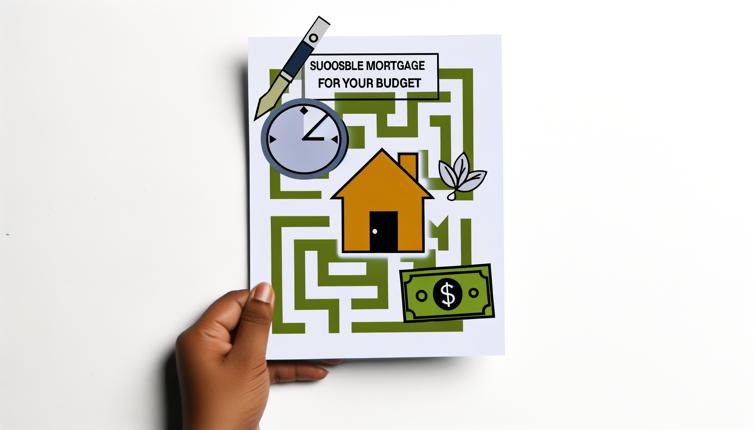1. Assess Your Financial Situation
Before diving into the mortgage market, it's important to assess your current financial situation. Take a look at your income, expenses, and savings. Determine how much you can comfortably afford to pay each month towards your mortgage.,Consider factors such as your monthly income, existing debts, and future financial goals. This will give you a clear idea of how much you can afford to borrow and repay each month.,You may also want to consider other financial commitments, such as saving for retirement or your child's education. These commitments can impact how much you can afford to spend on a mortgage.,By assessing your financial situation upfront, you can avoid taking on a mortgage that is too large for your budget.
2. Understand Mortgage Options
Once you have a clear understanding of your financial situation, it's time to explore the various mortgage options available. Familiarize yourself with different types of mortgages, such as fixed-rate mortgages, adjustable-rate mortgages, and government-backed loans.,Each type of mortgage has its own set of advantages and disadvantages. For example, a fixed-rate mortgage offers stability with a consistent interest rate throughout the life of the loan. On the other hand, an adjustable-rate mortgage may start with a lower interest rate but can fluctuate over time.,Consider factors such as your income stability, future plans, and risk tolerance when choosing a mortgage type. Additionally, research the current mortgage rates to get an idea of the prevailing interest rates in the market.,Understanding your options will help you make an informed decision that aligns with your budget and financial goals.
3. Shop Around for the Best Deals
Don't settle for the first mortgage offer that comes your way. Take the time to shop around and compare mortgage deals from multiple lenders. This will give you a better understanding of the interest rates, terms, and fees offered by different lenders.,Consider obtaining loan estimates from at least three different lenders, and compare them side by side. Pay close attention to the interest rate, loan terms, closing costs, and any other fees associated with the mortgage.,Remember, even a slightly lower interest rate can translate into significant savings over the life of the loan. Don't be afraid to negotiate with lenders to get the best deal possible.,Shopping around will help you find a mortgage that offers a competitive interest rate and favorable terms, ultimately saving you money in the long run.
Conclusion
Choosing a mortgage that fits your budget is a crucial step in the home buying process. By assessing your financial situation, understanding mortgage options, and shopping around for the best deals, you can make an informed decision that aligns with your financial goals. Remember to consider factors such as interest rates, loan terms, and fees when comparing mortgage offers. With careful consideration, you can find a mortgage that not only fits your budget but also helps you achieve your dream of homeownership.








